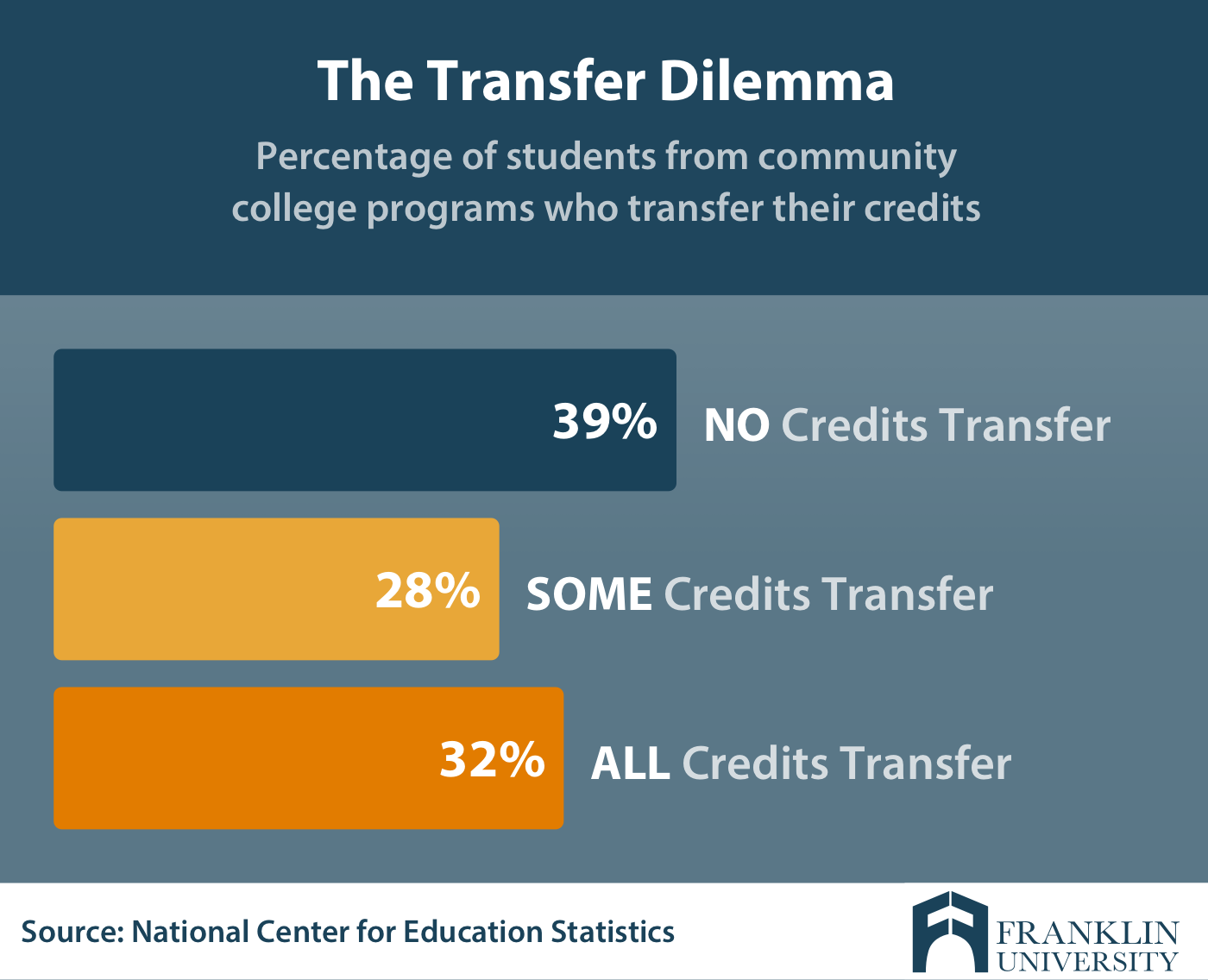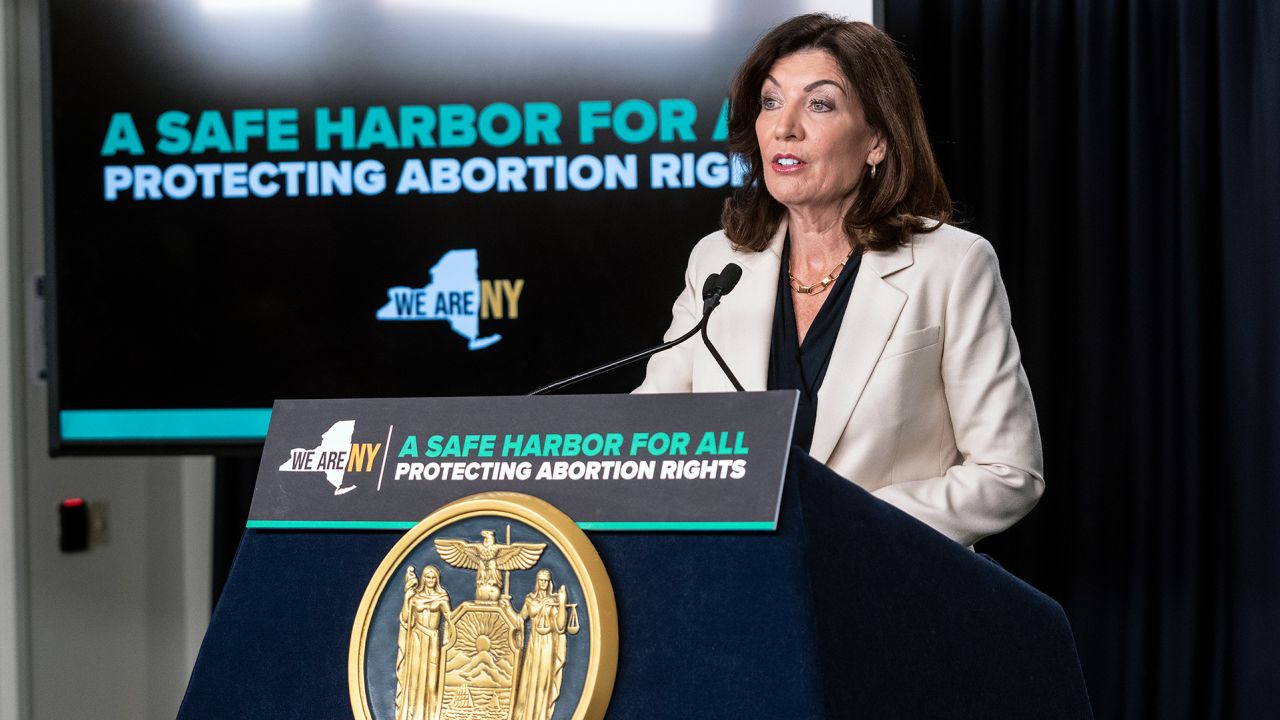
See: https://www.franklin.edu/blog/transfer-from-community-college-to-4-year-university
Dear Commons Community,
This following article was published yesterday by the Associated Press.
First came the good news. After taking classes at a community college, Ricki Korba was admitted to California State University, Bakersfield, as a transfer student. But when she logged on to her student account, she got a gut punch: Most of her previous classes wouldn’t count.
The university rejected most of her science classes, she was told, because they were deemed less rigorous than those at Bakersfield — even though some used the same textbooks. Several other courses were rejected because Korba exceeded a cap on how many credits can be transferred.
Now Korba, a chemistry and music major, is retaking classes she already passed once. It will add a year to her studies, plus at least $20,000 in tuition and fees.
“It just feels like a waste of time,” said Korba, 23, of Sonora, California. “I thought I was supposed to be going to a CSU and starting hard classes and doing a bunch of cool labs.”
Every year, hundreds of thousands of students start at community colleges hoping to transfer to a university later. It’s advertised as a cheaper path to a bachelor’s degree, an education hack in a world of ever-rising tuition costs.
Yet the reality is rarely that simple. For some students, the transfer process becomes a maze so confusing it derails their college plans.
Among nearly 1 million students who started at a community college in 2016, just one in seven earned a bachelor’s degree within six years, according to data from the National Student Clearinghouse.
One of the biggest obstacles is known as credit loss: when students take classes that never end up counting toward a degree.
Sometimes it’s a result of poor advising. Without clear guidance from community colleges, students take courses they don’t need. Blame can also lie with four-year colleges, which have varying rules for evaluating transfer credits. Some are pickier than others.
The outcome, however, is often the same. Students take longer to finish their degrees, costing more in tuition. For many, the extra work becomes too much to bear. Ultimately, roughly half of community college students drop out.
“It’s completely defeating for some students,” said Jessie Ryan, vice president of the Campaign for College Opportunity, a research group. “These systems have been designed to work for colleges and educators, but they haven’t been designed to work for students.”
The search for solutions has yielded scattered success. In many states, colleges and universities have formed partnerships to make sure certain classes transfer. More than a dozen states have adopted common class numbering systems to create consistency across schools.
Still, problems remain frustratingly common.
A recent study at the City University of New York system found, among students who transferred from a community college to a bachelor’s program, nearly half lost at least some work. On average, those students lost the equivalent of almost a full semester.
“The pipeline from community college to a bachelor’s degree is a very leaky pipeline,” said Alexandra Logue, one of the researchers and a former provost at the CUNY system. The outcomes are worst among Black, Hispanic and low-income students, who are more likely to start at community colleges, she said.
Korba thought she was taking the right classes at Columbia College, a community college in Sonora. She worked with a counselor and used an online catalog showing which courses were supposed to transfer to CSU schools.
But when officials at Bakersfield reviewed the transcript, they said most of her classes wouldn’t count toward her major.
University officials declined to comment on Korba’s case, but said a small number of transfer credits can fall into a “gray area” and require extra review. Dwayne Cantrell, Bakersfield’s chief enrollment officer, said credit loss is rare and many classes from California community colleges are accepted automatically.
Facing an extra year of school, Korba likely will run out of financial aid before she graduates. She’s making plans to go part-time in school and work longer hours so she can afford tuition and rent. But she wonders how long she can juggle it all.
“I worry how much more interested I’ll be in school than just focusing on getting money from a job,” she said.
Columbia College officials said they will advocate for Korba as much as possible as she continues her education.
“We consider the transfer process a high priority as such we will continue to provide focused career counseling and transfer services to assist students with this occasionally challenging process,” said Lena Tran, president of the college.
Stories like Korba’s aren’t uncommon, especially in California, which has long struggled to connect its 116 community colleges to more than 30 public universities.
Mea Montañez will graduate from San Francisco State University in May, but only after retaking nearly a year’s worth of classes she already passed at a community college. The school didn’t accept her classes in psychology, her major, because they weren’t considered a match.
“I’m taking the classes and I’m like, ‘This is exactly what I took,’” said Montañez, 34. “If anything, it was much more challenging at the community college level.”
University officials said classes can look the same on paper, but the details of what’s taught don’t always line up. Still, they acknowledged room for improvement.
“Credit loss happens, but it’s something we’ve been working hard on for a long time,” said Lori Beth Way, dean of undergraduate education at SFSU.
When students transfer to any school, their transcripts are often reviewed by faculty. For instance, biology professors would decide whether a biology class from another school should count.
But those judgments can be colored by stigma — some faculty look down at community colleges — and financial incentives, Logue of CUNY said.
Refusing credits, she said, means students must take more classes at their own school. Faculty also sometimes hold a higher standard for accepting a class toward a major than just accepting it as a general requirement.
“That’s money, and it keeps people’s jobs,” she said. “But it’s a very short-sighted viewpoint.”
Some states have intervened to take subjectivity out of the process. Under a new Maryland rule, a class must be accepted if it shares 70% of the learning objectives with a comparable class. If credits are denied, students and community colleges must receive an explanation.
California made strides with a 2010 law requiring community colleges to offer special associate degrees guaranteeing admission to a CSU campus. A 2021 law will put all eligible students on that track unless they opt out, and create a set of general education classes that must be accepted at all state universities.
Two Virginia colleges have gone further. From their first day on campus, students at Northern Virginia Community College are offered a direct path to a bachelor’s at nearby George Mason University. Students receive dual admission at both schools and they can choose from 87 academic pathways telling them exactly which classes they need.
Known as Advance, the program is designed to minimize credit loss and increase graduation rates. George Mason is working on expanding the model to other community colleges.
“Students understand from Day One what they are required to take,” said Jason Dodge, director of the program. “They know the rug is not going to slip out from under them along the way.”
As the article makes clear, the transfer credit policies at many senior colleges have been a great disservice for community college students. While there has been some movement to ameliorate the issue, it will not go away any time soon without firm policy action on the part of government and university systems.
Tony













